Ten Years, Ten Great Games - 2024 Edition
January 28, 2025 - Games
Ten years ago, in 2014, I wrote a post about a Joystiq feature called Ten Years, Ten Great Games, and listed my own. This list included only games from the past ten years, and included games that were obvious for me such as Minecraft and Pixeljunk Monsters, both of which I still play, and super-old games like Half-Life 2, which somehow squeaked in just under the decade mark back then.
But now that another ten years has gone by, I've decided it's time to revise my list. It's difficult - so many of the games I think of as my favorites take place before 2014 if not before 2004. But I've assembled the list of my ten favorites from the past decade, and here it is.
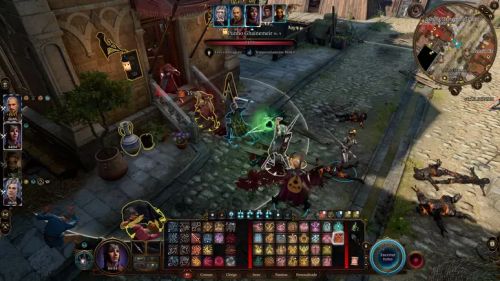
Baldurs Gate 3 (2023)
I played the crap out of Baldurs Gate 1 and Baldurs Gate 2. Back in 2007 when I made my list of Greg's Top 51 Games of All Time, these two Baldurs Gate games took the #3 and #7 slots respectively. In retrospect, I'd likely put the second above the first.
The third sequel in this franchise had quite a lot to live up to. It needed good characters, a good story, and engaging gameplay. It delivered on every count. The story tied in neatly with the Bhaalspawn story from the first two games while introducing a new big bad: The extradimensional illithids. It had a myriad of colorful NPCs, each with their own subplots and backstories. And it altered the fifth edition Dungeons and Dragons ruleset just enough to make it work in a video game without changing it enough to break it as some other games have done.
One of the most impressive things the game did in terms of narrative complexity was to make decisions matter. A seemingly inconsequential choice you make in the first hours of the game might result in a character you saved becoming a huge help dozens of hours later.
I ran through the game three times. On my first run, I chose a character who ended up being evil, much to my surprise, and I ended up getting on board for an evil ending. On my second run, I picked up a few companions I'd missed the first time and played a good character. The third time, I went with the dark urge and min/maxxed all my characters, going for some of those crazy fun internet character builds. I had a blast every time, and I know I'll be going back to the game to pick up those 5 or so achievements I've missed. All except for the “honor run” BS. I don't need to play a game which will delete my save if I die.
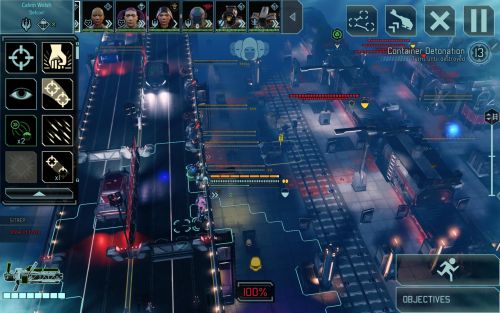
X-Com 2 (2016)
I came to X-Com very late. I played the first game in the series after the second had already been released. Then I tried X-Com 2 and fell in love. It's difficult. But by the third time I'd played through the game, I ended up playing on the increased difficulty mode despite that. You create characters, personalize them, level them up, and sometimes they die and you lose them forever. As the saying goes, that's XCOM, baby.
X-Com details an alien invasion in which the aliens live amongst us on Earth, ruling over us and proclaiming that their actions are in our best interests. The members of X-Com know this to be a lie. It's all a bit hackneyed, but I love it despite that.
You undergo missions as your crew slowly climbs a tech tree, training squad members in one of a half-dozen character classes, and try to position your long-range snipers, sneaky reapers, and rocket-toting grenadiers on high ground or in cover before the enemy registers your presence. Some missions require you to protect resistance groups, others to seize assets before they're taken or to destroy a radio tower before a transmission is sent. And then you'll get the odd mission with The Lost, who are basically zombies - a third faction who will attack anyone and everyone they can.
The game is fantastic. I've played the whole thing through probably five times, and I know I'll go back to it again at some point.
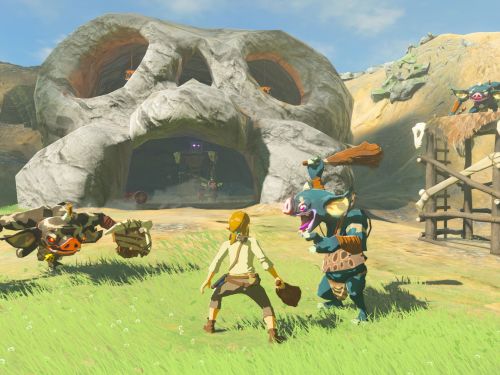
The Legend of Zelda: Breath of the Wild (2017) / Tears of the Kingdom (2023)
Since I first played Twilight Princess on the Wii back in the day, I've known that the Zelda games are my jam. They have the same vibe as Beyond Good and Evil, which I've often cited as my #1 game of all time. Stealth gameplay, open world, mini-games, collectibles, it's got everything. I played the hell out of both of the switch games, and I loved it. I especially loved how the switch controller allowed fine-tuned aiming of the bow using the spatial location of the controller. If anything is going to let a console controller compete with the accuracy of good old mouse and keyboard, this is it.
The Zelda games are all so solid that's it difficult for me to add much that hasn't already been said elsewhere more eloquently, so I'll just leave this here.
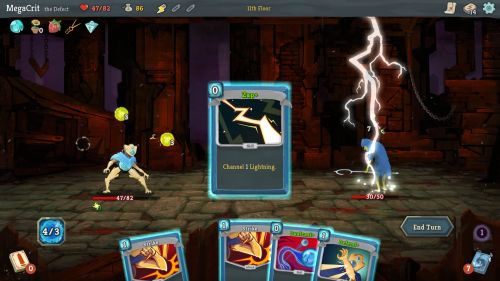
Slay the Spire (2019)
I play Slay the Spire on my phone pretty much daily. When I have ten minutes to spare in a line at a grocery store or sitting in my car waiting to pick up kids, it's what I do. I've been playing it for roughly four years, and after my first victory with my favorite character, I naively wrote up a Silent Guide which in retrospect makes a lot of claims that I no longer 100% agree with.
I've played lots of deck-building games. Video games with cards and digital board game adaptations are very much my jam, but there's something different about this one. Slay the Spire is a roguelike card game wherein you progress through floors, adding, removing, purchasing, and upgrading cards, fighting monsters, elites, and bosses, and collecting potions, relics, and curses.
You pick from one of four characters, each with completely different playstyles. You fight dozens of different monsters types, and each of them has different strengths, weaknesses, attack patterns, and unique mechanics. With all these rules, you'd think it would be easy to get lost in the fiddlyness of it all, but not so. Any modifiers that exist show up on the cards themselves so that you know at any given moment how much damage the enemy is about to do, the block or attack value of each of your cards, and any buffs or debuffs that exist on you or your enemy. I play the game often when I'm not paying nearly enough attention, and while this isn't ideal and I've died often enough as a result, it's very doable.
The game is insanely addictive. My phone tells me that I've played the game for 1124 hours, during which I've won 183 times and died 2157 times. Sounds about right.
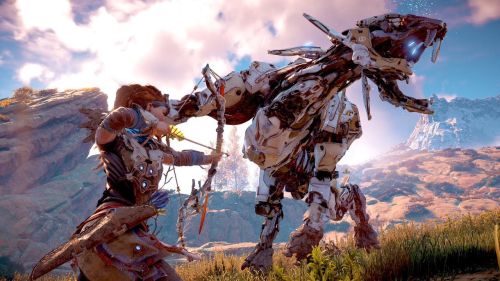
Horizon Zero Dawn (2017) / Horizon Forbidden West (2022)
I nearly didn't include Horizon simply due to fear of of recency bias. Horizon: Forbidden West is the game I'm playing right now, and I'm quite aware that when you're hip-deep in a game, that's the one that will tend to dominate your thoughts. But these two games are excellent.
They take place in a distant post-apocalyptic future in which massive man-made terraforming machines designed to look like actual fauna dominate the landscape. The actual mode of mankind's near-extinction is revealed during the course of Horizon: Zero Dawn, and I'll not spoil it here.
You play as a huntress named Aloy who must fight her way across the landscape, befriending various tribes, exploring ancient technological ruins, and battling huge machines. Of course, while the machines have acid sprayers and rocket launchers, you're fighting them with a spear and a bow.
It's the gameplay that sings. Functionally, it's very much like other single player first-person shooters such as Far Cry, with the primary exception that you're using bows rather than guns. Of course, as the game progresses your arrows become more like something Hawkeye would use, sporting explosive tips, shock ammunition, or ropes to tie down your enemy.
Gathering collectibles as well as machine and animal parts to upgrade your gear, climbing the giraffe-like "tallnecks" to use their radar in mapping out various areas, and competing in arenas and races will take as much of your time as the game's quests. And it really is a lot of fun.
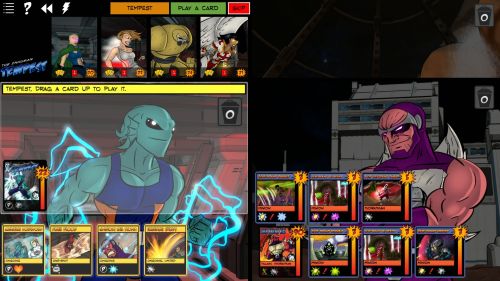
Sentinels of the Multiverse (2014)
This game's release is pushing the timeline, but it came out in October of 2014, which is technically after the first Ten Years, Ten Great Games article I wrote a decade ago, so I'm calling this one legit.
Back then in 2014, I was playing the hell out of the tabletop version of this game, buying expansions, even playing the game by myself on the coffee table at times. I created my own custom case for the game, printed out custom boxes for each card deck, and I've written about Sentinels of the Multiverse numerous times in the past. I still love the game.
Now it's 2025 and it's been months since I've pulled out the cardboard version, but I'll go back to the digital version of the game every now and again when I'm up for a quick and easy playthrough. It's fantastic.
Sure, I'm writing less about this game than about so many others on this list, but that's mostly because anything I could say now, I've already written in other articles on this site. If you're interested, click through above.
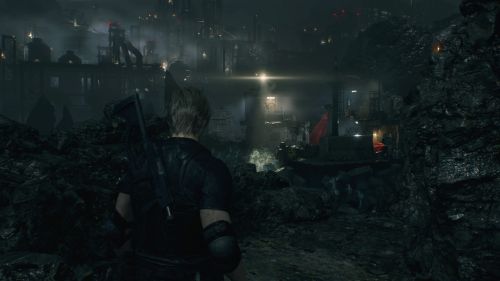
Resident Evil 4 Remake (2023)
I've got good memories of the Resident Evil games. Resident Evil 2 was my first, and will always have a special place in my heart. I have fond memories of sitting in the dark in my childhood room, PS1 controller in hand, playing on a 15 inch tube TV, falling out of my chair one time due to a jump scare.
But Resident Evil 4 is no doubt the best in the series. The Ganados are a strange zombie variant, but the gameplay is solid, and overall the entire thing is just peak Resident Evil gameplay.
This remake subtly revised many of the original game's elements, modernizing and improving on them. It's excellent, and deserves a place on this list.
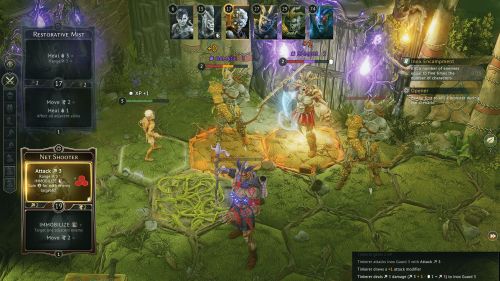
Gloomhaven Digital
It was maybe five years back when I started playing Gloomhaven tabletop with a neighborhood friend. We quickly grew to love the game, and played the campaign intermittently for years until he moved out of state a few months ago.
Before he'd left, he pointed out a sale to me, and I bought the digital version. Now I'm able to play the computer game equivalent, and while the lack of group planning removes the social aspect and honestly makes the game more difficult, I do still love Gloomhaven.
Gloomhaven is a dungeon crawler with minimal story elements, branching paths, random encounters, loot collection, leveling up, building your character to best suit your playstyle, and so many other RPG tropes.
As you play and your character levels up, you will eventually have the option to retire your character and unlock a previously unavailable character class. Your new character doesn't begin at level one, but rather at a level equal to the city of Gloomhaven's “prosperity”, which you improve as your game progresses, and an adventure's difficulty is based on the average party level, so starting a new character isn't a detriment, and really helps to keep the gameplay fresh, as the different character classes play very differently.
It's not an easy game, and I took a break when I got stuck on a few missions a while back - the game isn't as easy when I don't have a friend to point out that I'm about to make a bad mistake. But even if I'm not good at the game, I still love it.
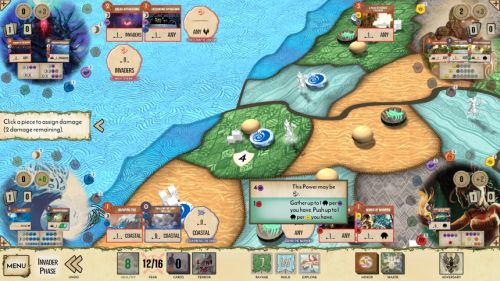
Spirit Island Digital
Spirit Island is a cooperative board game created by the same duo who created Sentinels of the Multiverse. It's very complex and very difficult, but it's a brilliant game.
You play Spirit Island as one of a half dozen protector spirits, aiding the native Dahan people of the island in fighting off colonizing settlers. As the colonists explore the pristine island and build cities, they pollute the land, creating blight, which damages the spirits. If a spirit dies, or if the island becomes too blighted, all players lose. This happens more often than you might think.
On your turn, you'll choose from a set of options your spirit has, and each spirit has different choices. The choice may include gaining energy, gaining new power cards, expanding your influence on the island, and refreshing your hand of cards. These choices are never easy, and often it's a matter of deciding what will help you now versus what may be best long-term. It's all complicated by the fact that some of your power cards are “quick” and some are “slow” slow. During a game turn, the quick powers go first, then the settlers ravage and expand, and lastly you'll play out the slow powers you've chosen. The fact that you're choosing slow powers before you know what the state of the board may be when they activate creates some interesting twists.
I'm not looking to give too in-depth a review or to teach anyone how to play the game here, but the digital version is a faithful adaptation of the tabletop version, and it's helped me to notice some rules I'd missed on the tabletop.
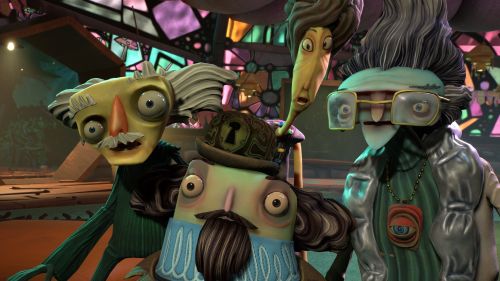
Psychonauts 2
The original Psychonauts game came out in 2005. I loved it. I named my former video game blog after a location in Psychonauts, and I've got a framed signed poster from the game on the wall in my office.
Like its predecessor, Psychonauts 2 is weird, occasionally clunky, and frequently hilarious. While my favorite moment of the previous game was the outset of the city named Lungfishopolis, my favorite bit in Psychonauts 2 is undoubtedly a small and ultimately missable conversation between a knight and a dragon in a library.
While I can't rank it as highly as the original Psychonauts, I did very much enjoy the game, and it did squeak its way into my list.
And that's my favorite video games of the past decade. Perhaps I'll write up another one in 2035.